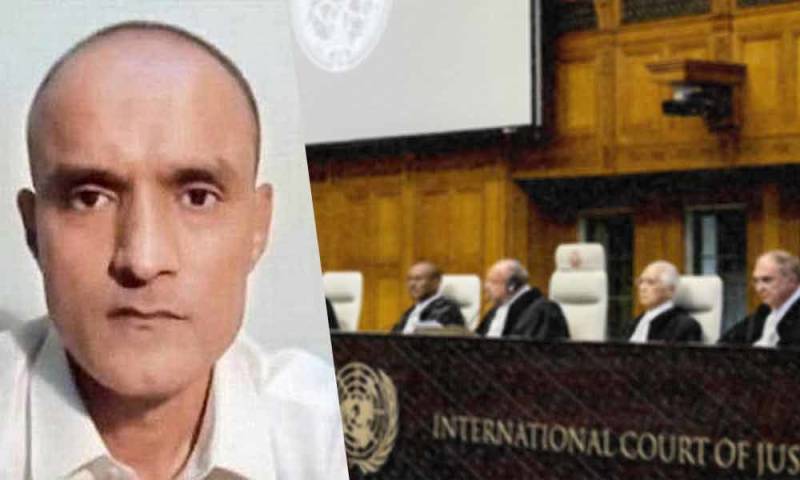
Kulbhushan Jadhav case was decided in International Court of Justice today. While India believes that the verdict is its victory, Pakistan too claims that India has lost the case and ICJ had agreed with Pakistan's stance. Watch this video for the complete history of the case and a clear perspective on the Kulbhushan Jhadav, or Yadav, case.
The International Court of Justice (ICJ) has announced its verdict
on India’s petition against the death sentence
given to Indian spy Kulbhushan Jadhav
It ruled that Jadhav be allowed consular access and asked Pakistan
to ensure “effective review and reconsideration of his conviction and sentences”.
Experts are of the opinion that the verdict has allowed both India and Pakistan to claim victory.
India’s request to grant consular access to Jadhav
has been accepted, but the international court
has stopped short of suspending the death sentence and releasing Jadhav.
India decided to move the International Court of Justice at The Hague
on May 8, 2017 after Pakistan refused to
grant consular access to Kubhushan Jadhav.
In its appeal, India accused Pakistan of "egregiously violating"
provisions of the Vienna Convention by denying
the country consular access to Jadhav.
On May 18, 2017, a bench of the ICJ restrained Pakistan
from executing Jadhav till the court adjudicated the case.
India gave two main arguments:
1) Pakistan breached the Vienna Convention
as it repeatedly denied consular access to Kulbhushan Jadhav
(2) the process of resolution of this case.
India questioned the functioning of Pakistan's military courts and called for dismissal of Jadhav's death sentence.
India argued that Pakistan violated international law
by not allowing India to give diplomatic assistance
to Kulbhushan Jadhav before he was convicted
by a military court.
Pakistan's counsel argued,
"India's claim for relief must be dismissed or declared inadmissible."
Pakistan had rejected India's plea for consular access claiming that New Delhi wants
the access to get the information gathered by its "spy".
Pakistan rubbishes India's argument that judges
in Pakistan's military courts do not have
sound legal understanding
because they are primarily military officers.
Pakistan maintained that its courts are "extremely independent".
Pakistan also claimed that its military had "sufficient evidence"
to prove that Kulbhushan Jadhav was a spy.
The International Court of Justice (ICJ) has announced its verdict
on India’s petition against the death sentence
given to Indian spy Kulbhushan Jadhav
It ruled that Jadhav be allowed consular access and asked Pakistan
to ensure “effective review and reconsideration of his conviction and sentences”.
Experts are of the opinion that the verdict has allowed both India and Pakistan to claim victory.
India’s request to grant consular access to Jadhav
has been accepted, but the international court
has stopped short of suspending the death sentence and releasing Jadhav.
India decided to move the International Court of Justice at The Hague
on May 8, 2017 after Pakistan refused to
grant consular access to Kubhushan Jadhav.
In its appeal, India accused Pakistan of "egregiously violating"
provisions of the Vienna Convention by denying
the country consular access to Jadhav.
On May 18, 2017, a bench of the ICJ restrained Pakistan
from executing Jadhav till the court adjudicated the case.
India gave two main arguments:
1) Pakistan breached the Vienna Convention
as it repeatedly denied consular access to Kulbhushan Jadhav
(2) the process of resolution of this case.
India questioned the functioning of Pakistan's military courts and called for dismissal of Jadhav's death sentence.
India argued that Pakistan violated international law
by not allowing India to give diplomatic assistance
to Kulbhushan Jadhav before he was convicted
by a military court.
Pakistan's counsel argued,
"India's claim for relief must be dismissed or declared inadmissible."
Pakistan had rejected India's plea for consular access claiming that New Delhi wants
the access to get the information gathered by its "spy".
Pakistan rubbishes India's argument that judges
in Pakistan's military courts do not have
sound legal understanding
because they are primarily military officers.
Pakistan maintained that its courts are "extremely independent".
Pakistan also claimed that its military had "sufficient evidence"
to prove that Kulbhushan Jadhav was a spy.
